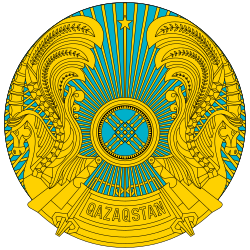Background
Kazakhstan's constitutional history reflects its transition from a Soviet republic to an independent nation-state. Prior to independence, the Kazakh Soviet Socialist Republic operated under the Constitution of the Kazakh SSR, which was adopted in 1937 and later revised in 1978. These documents were aligned with the broader legal framework of the Soviet Union and did not encompass the aspirations of an independent Kazakhstan.
Following the dissolution of the Soviet Union in 1991, Kazakhstan declared its sovereignty and began the process of establishing a legal and political system befitting an independent state. This period necessitated the development of a new constitution that would reflect the country's newfound independence and democratic aspirations.
1993 Constitution
In January 1993, Kazakhstan adopted its first constitution as an independent republic. This document was a product of the Supreme Soviet, the legislative body that had been established during the Soviet era. The 1993 Constitution was considered a transitional document, reflecting the country's shift from a Soviet republic to an independent state. It outlined the basic principles of governance but was seen as insufficient for the emerging needs of the nation.
By the mid-1990s, it became evident that the 1993 Constitution did not adequately address the complexities of an independent Kazakhstan. The political landscape had evolved, and there was a growing consensus that a new, more comprehensive constitution was necessary to establish a stable and effective governance framework. The existing constitution lacked provisions for a clear separation of powers, checks and balances, and detailed human rights protections, which were deemed essential for the country's development.
Drafting of the 1995 Constitution
In preparation for the adoption of a new Constitution, a number of draft projects were examined by the leadership of Kazakhstan. With the purpose of guaranteeing the quality and legitimacy of the final text, President Nursultan Nazarbayev, by decree of 22 May 1995, established the Expert Consultative Council under the President of the Republic of Kazakhstan. Into its composition were included prominent Kazakhstani jurists and state officials, among them Yuri Basin, professor of the Kazakh State Law Institute; Vladimir Kim, head of the Department of State Law at Kazakh State National University; Konstantin Kolpakov, representative of the President in the Supreme Council; Baurzhan Mukhamejanov, head of the Department for Legislation and the Judicial-Legal System of the Presidential Administration; Anatoly Kotov, deputy director of the Research Center for Private Law; Erkesh Nurpeisov, rector of the Kazakh State Law Institute; Gairat Sapargaliev, director of the Institute of State and Law of the Ministry of Justice; Maidan Suleimenov, director of the Research Center for Private Law; and Nagashbai Shaikenov, Minister of Justice. [3]
Alongside these domestic specialists, the work of the commission was also joined by foreign experts. In particular, Sergei Alexeyev, chairman of the Academic Council of the Research Center of the Russian Federation; Jacques Attali, advisor to the Conseil d’État; and Roland Dumas, chairman of the Constitutional Council of France, took active part in its deliberations. [3]
Nazarbayev himself was closely involved in the drafting process. According to later accounts, he personally studied the constitutional models of more than twenty states, with particular attention given to the experiences of Singapore and France, which were regarded as providing valuable examples for a balance between strong presidential authority and institutional stability. Over the course of the drafting, no fewer than 18 revisions of the text were prepared and considered before Nazarbayev and the Expert Council were satisfied with the final version that would be submitted for public approval.
The draft Constitution was published for nationwide discussion on 30 June 1995 during the second session of the Assembly of People of Kazakhstan. Over the following month, debate was widespread: some 33,000–35,000 meetings were held across the republic, and citizens voiced approximately 30,000 proposals and comments. [6] Public associations, trade unions, and social movements were also active, with 58 republican organizations submitting 678 formal proposals and remarks. [6] Although the basic ideology and structure of the draft remained intact, the process of public consultation had a significant impact. In total, more than 1,100 amendments and additions were made, affecting 55 of the 95 articles.


